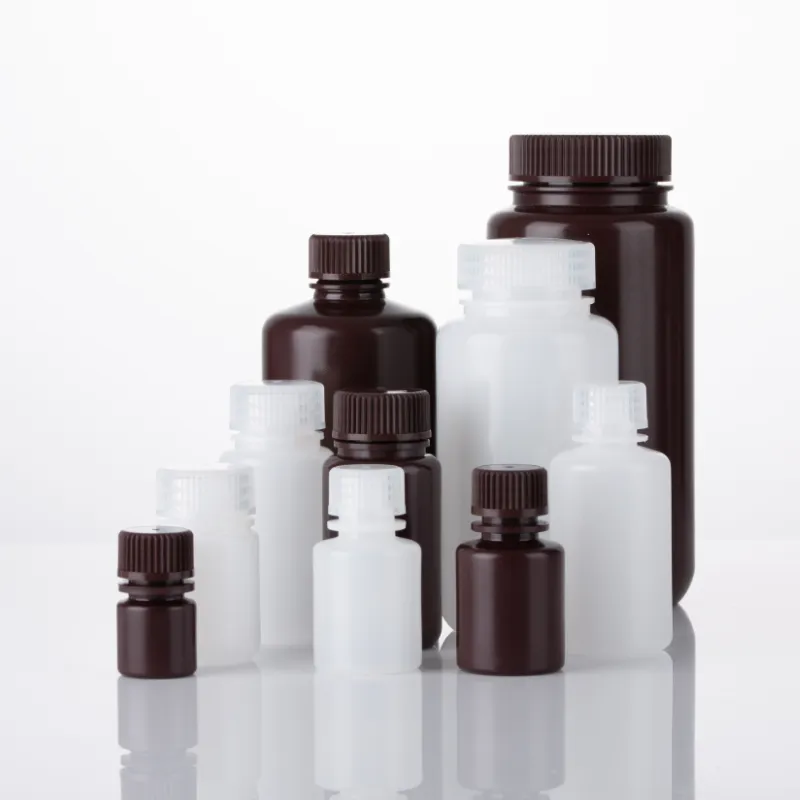https://www.wahmg.com/)">
reagent bottle function and uses
reagent bottle function and uses
The Function and Uses of Reagent Bottles
Reagent bottles serve as fundamental tools in chemistry and various scientific fields, enabling researchers, educators, and students alike to safely store and handle chemical substances. These bottles are designed specifically for the containment of reagents — the reactive substances used in chemical reactions. In this article, we will explore the functions and diverse applications of reagent bottles, highlighting the importance of their use in laboratory settings.
Functions of Reagent Bottles
Reagent bottles are primarily designed for the safe storage of chemicals. Their structure often includes features that mitigate the risks associated with handling reactive substances. These functions include
1. Safety Most reagent bottles are made from materials such as glass or high-density polyethylene (HDPE), which are inert and resistant to the chemicals stored within. This minimizes the risk of reactions that may occur in inappropriate containers. Furthermore, many reagent bottles come with secure lids or cork stoppers to prevent spills and reduce exposure to harmful substances.
2. Labeling Reagent bottles typically have ample surface area for labeling content, concentration, and other essential information. Proper labeling is vital for safety and efficiency in laboratories to avoid cross-contamination and accidental mixing of incompatible reagents.
3. Measuring and Dispensing Many reagent bottles are designed with graduated markings to facilitate precise measurement and dispensing of chemicals. This feature is essential for experiments requiring specific concentrations, ensuring that researchers can accurately replicate reactions and results.
4. Visibility Glass reagent bottles allow visibility into the contents, enabling scientists to quickly assess the color, clarity, and other physical properties of the reagent without opening the container. This is particularly valuable in preventing contamination and maintaining the integrity of sensitive reagents.
Applications of Reagent Bottles
reagent bottle function and uses

Reagent bottles find applications across various sectors, including educational institutions, industrial laboratories, and research facilities. Here are some common uses
1. Educational Use In schools and universities, reagent bottles are utilized for teaching chemistry concepts. They store laboratory reagents used in experiments, allowing students to learn safe handling practices while engaging in hands-on experiments. Proper education on the use of reagent bottles helps instill discipline regarding chemical safety and laboratory protocols.
2. Pharmaceuticals In pharmaceutical laboratories, reagent bottles are instrumental in the development and storage of drug compounds. Accurate measurement and storage conditions are crucial to ensure the efficacy and safety of pharmaceutical products, making the role of reagent bottles critical in this field.
3. Chemical Manufacturing Various industries that rely on chemical processes, such as the production of plastics, paints, and fertilizers, use reagent bottles for raw material storage and component mixing. The ability to store large volumes of chemicals securely is crucial to maintaining the efficiency and safety of manufacturing operations.
4. Environmental Testing Reagent bottles are used in environmental laboratories to collect and store samples for analysis. Chemicals that are used as reagents in testing for pollutants in water, soil, and air require secure storage to preserve their effectiveness and prevent degradation.
5. Research Applications In scientific research, reagent bottles play a crucial role in experiments ranging from biochemistry to material science. Researchers depend on these containers to store reagents that are critical for various assays and analyses, ensuring consistency and reliability in their findings.
Conclusion
In conclusion, reagent bottles are indispensable tools in scientific laboratories, serving multiple functions that enhance safety, measurement accuracy, and organization. Their applications span educational settings, pharmaceutical research, chemical manufacturing, environmental testing, and more. By understanding the function and proper use of reagent bottles, individuals in the scientific community can ensure safe and effective handling of chemical substances, which is essential for advancing knowledge and innovation in various fields. As we continue to explore new scientific frontiers, the importance of reliable storage solutions like reagent bottles cannot be overstated.
-
Wholesale Plastic Juice Bottles with Caps 16 oz Options Available Bulk Packaging SolutionsNewsJun.10,2025
-
Laboratory Apparatus Reagent Bottle – Durable & Chemical Resistant Bottles for Safe StorageNewsJun.10,2025
-
Squeezable Dropper Bottles Durable, Leak-Proof & CustomizableNewsMay.30,2025
-
Affordable Plastic Petri Plates Sterile & Disposable Lab-GradeNewsMay.30,2025
-
Eye Dropper Caps Precision 24/410 & Plastic Bottle-Compatible TipsNewsMay.30,2025
-
Affordable Mini Spray Bottle Price & Wholesale Deals Shop NowNewsMay.29,2025





















